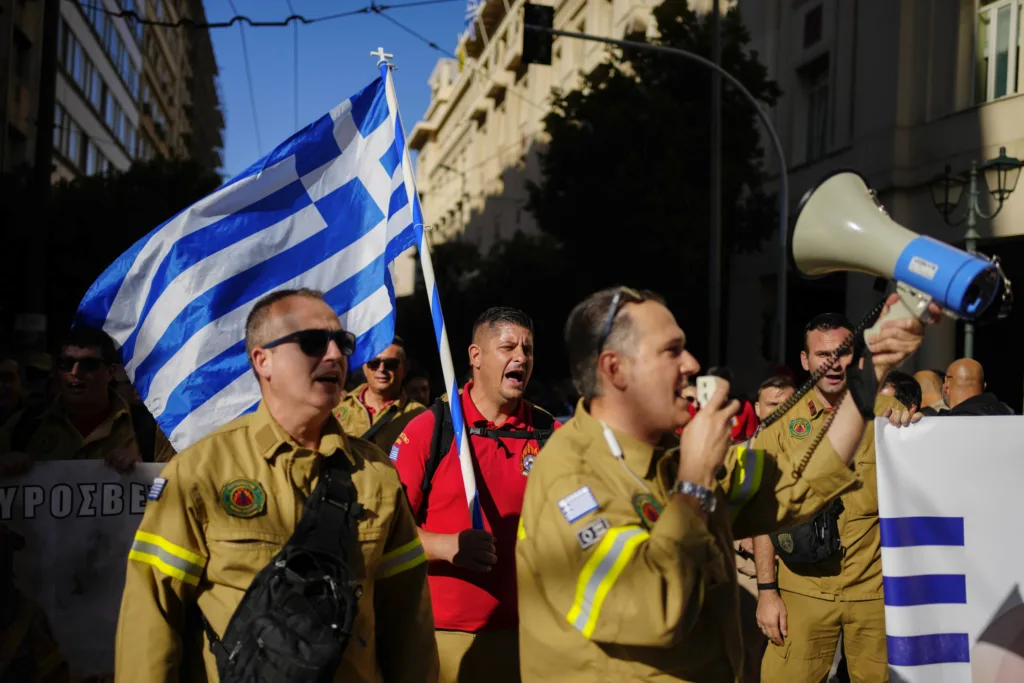Workers flocked to the streets of Athens, Greece on Wednesday, November 20, to take part in a 24-hour general strike to protest the rising cost of living. Organised by labour unions, the strike coincided with the government submitting its 2025 budget to Parliament.
According to AP, the industrial action disrupted public transport and halted ferry services between the Greek islands and the mainland. Among those striking were medical staff at state-run hospitals and teachers.
Unions demanded increased wages and the restoration of collective wage agreements, which were scaled back during Greece’s financial crisis.
Approximately 12,000 people marched in central Athens, while an additional 5,000 demonstrated in Thessaloniki.
Yannis Panagopoulos, head of the General Confederation of Workers of Greece, stated: “We want to showcase the rage and resentment of salaried employees for what is happening to their income.”

Greece’s financial crisis, which began in 2010, led to severe austerity measures, including pension and wage cuts, as part of international bailout agreements. Although the economy has recovered and recently regained investment-grade status, the country still has the highest debt-to-GDP ratio in the European Union.
Esther Lynch, General Secretary of the European Trade Union Confederation, expressed solidarity, stating: “Greece needs a pay rise… to demand the genuinely binding collecting agreement to guarantee a fair day’s pay for a fair day’s work.”
Unions criticised Greek Prime Minister Kyriakos Mitsotakis’ government for not adequately addressing inflation and housing issues, which have worsened workers’ living standards.
In an act of solidarity, journalists held a separate 24-hour strike on Tuesday, November 19, halting all news broadcasts to focus on covering Wednesday’s general strike.
Source: AP.
